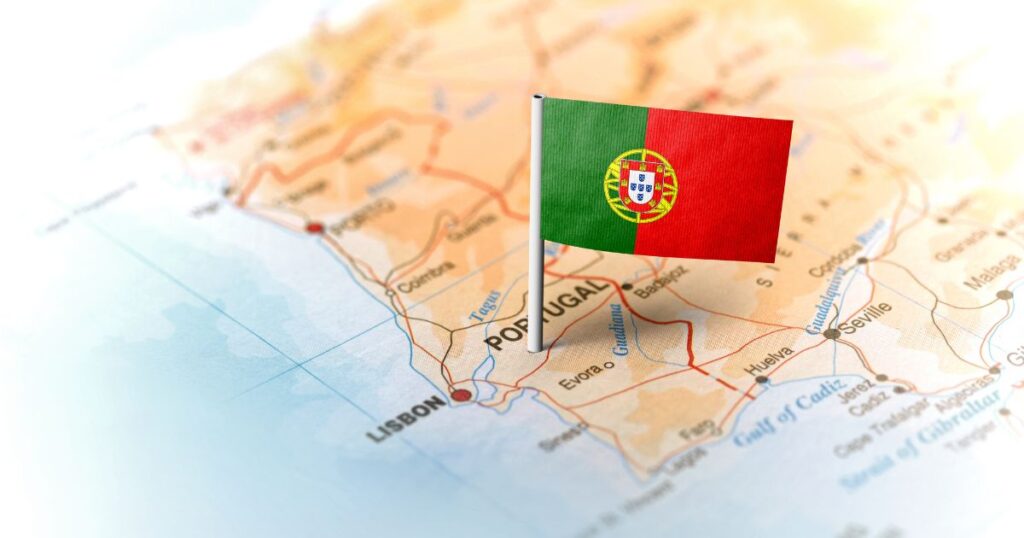Portugal has launched NHR 2.0 (Non habitual tax) is designed to attract highly skilled and talented professionals to relocate to Portugal by providing them with a special 20% flat tax rate on income derived from eligible employment and self-employment activities for up to 10 years. The special tax allows Golden Visa holders to significantly reduced liability on foreign income if they meet certain residency requirements, by chosing to reside in Portugal while maintaining income sources outside the country.
Resident Tax Rates 2025
- Residents in Portugal for tax purposes are taxed on their worldwide income at progressive rates varying from 13% to 48% for 2025.
- Non-residents are liable to income tax only on Portuguese-source income, which includes not only that portion of remuneration that can be allocated to the activity carried out in Portugal but also remuneration that is paid/borne by a Portuguese company or permanent establishment (PE).
- Non-residents are taxed at a flat rate of 25% on their taxable remuneration (e.g. employment, self-employment, and pension income) in 2025.
Deadlines
The known NHR (ended in 2023) is only available for those individuals that became residents for tax purposes until the end of 2024. For those who became tax residents in Portugal during 2024, a transitional deadline of March 15, 2025, applies, while all others must register by January 15 of the year following their residency.
The Tax Incentive for Scientific Research and Innovation (IFICI) has been in force since 1 January 2024 and is intended to replace the Non-Habitual Resident (NHR) regime. On 13 February 2025, the Portuguese investment agencies AICEP and IAPMEI published a list of activities considered relevant for the national economy, in addition to defining the list and requirements of qualified jobs. On 20 February 2025, the official forms for registering under the Tax Incentive for Scientific Research and Innovation were published.
Benefits
The new NHR2.0 named ‘Tax incentive for scientific research and innovation’ (IFICI) is available for 10 years and foresees:
- flat rate of 20% for employment and self-employment income; and
- full exemption on foreign source income (except pensions),
- Must apply by Jan 15 following the year you become tax resident.
Eligibility
NHR 2.0 for those who:
- Become residents in Portugal for tax purposes (183 days+); and
- Have not lived in Portugal in the previous 5 years; and
- Do not benefit from the old NHR or the former tax residents regime; and
- Met one of the following eligible tests below:
| TYPE | CRITERIA | REGISTRATION |
| Madeira and Azores | Jobs and other activities carried out by tax residents in the autonomous regions of the Azores and Madeira, to be defined by regional decree-law | Madeira and Azores Government |
| Teaching and Research | Teaching in higher education and scientific research, including scientific employment in entities, structures, and networks within the Portuguese science and technology system, as well as positions on the corporate bodies of entities that were qualified as technology and innovation centers | A Fundação para a Ciência e a Tecnologia (FCT), I.P. |
| Qualified Jobs(andcorporate bodies members) | Portuguese companies within the scope of ‘contractual benefits towards productive investment’, as defined in Chapter II of the Investment Tax Code(investments higher than 3M€ – industry, IT, tourism, agriculture, energy, telecommunications) | AICEP, EPE |
| Highly Qualified Jobs(Listed)[1] | Option A:Portuguese companies with relevant applications[2], which benefit or have benefited from the investment support tax regime, in within Chapter III of the Investment Tax Code (RFAI) [3] Option B:Industrial and Service companies, whose main activity corresponds to a listed activity[4] and that export at least 50% of their turnover | Portuguese Tax Authorities |
| Qualified Jobs(andcorporate bodies members) | Identified by the Portuguese agencies AICEP or IAPMEI as being relevant to the national economy, particularly in the context of attracting productive investment and reducing regional asymmetries | AICEP, EPEOr IAPMEI IP |
| Jobs (and corporate bodies members) | R&D employees whose costs are eligible for the purposes of the tax incentive system for research and business development, as defined in the Investment Tax Code (SIFIDE) | ANI – Agência Nacional da Inovação SA |
| Jobs(and corporate bodies members) | In entities certified as start-ups under the Portuguese Start-Up Law (IT business, R&D) | Start Up Portugal |
Source: MDME
IRS Returns
People who receive income from employment, business, professional work, capital, property, assets and pensions in Portugal are required to declare such income. In certain situations, however, citizens are exempted from filing the IRS return.
The IRS return must be submitted by:
- citizens resident in Portuguese territory – the income of all members of the household is taken into consideration, including income obtained outside Portuguese territory
- non-resident citizens – only for income obtained in Portuguese territory which has not been subject to deduction at source.
New NHR 2.0 Tax Rates
| NHR 2.0 (IFICI) | Tax Rates |
| High Added Value Activities | 20% |
| Pensions | upto 53% |
| Dividends / Royalties | 0% |
| Interests | 0% |
| Capital gains on movable property | 0% |
| Crypto Income | 0% or 28% |
| Rental Income | 0% |
| Blacklisted Activities | 35% |
Golden Visa clients must notify tax authorities before start the golden visa application process to take advantage of the NHR 2.0 special tax regime.
Please contact us for more information.





